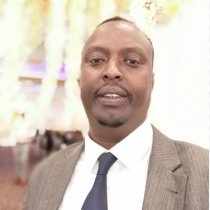This is not caution—it is hypocrisy.
For more than three decades, Somaliland has been a functioning state in all but name. It has a government that controls its territory, a permanent population, borders, and the ability to deal with other states. It has held elections, transferred power peacefully, and built a relatively stable democracy in one of the most volatile corners of the world. Yet the international community still pretends it does not exist.
This is not caution—it is hypocrisy.
Somaliland declared its independence in 1991 after the collapse of Somalia and the horrors of Siad Barre’s regime. It was not breaking away from Somalia but reclaiming the sovereignty it briefly enjoyed in 1960 after independence from Britain. Since then, it has done everything asked of a state and more. But recognition is withheld, as if stability and democracy are somehow crimes in the Horn of Africa.
The contrast with neighbours could not be starker. Djibouti, with a majority Isaaq Somali population, has been recognised since 1977. Eritrea, South Sudan, and East Timor were all eventually recognised after bloody struggles. Somaliland, by contrast, has chosen peace—and been punished with silence.
I visited Somaliland years ago and saw with my own eyes a society rebuilding itself from the ashes of war. Roads, schools, hospitals, businesses—all emerging without the benefit of aid that flows so freely to Mogadishu. The people were determined, proud, and committed to peace. This was not the portrait of a breakaway province; it was a country.
For over 30 years, Somaliland has done what few thought possible in the Horn of Africa. It has run elections that international observers judged credible. It has built institutions that hold leaders accountable. It has fought terrorism, secured its coastline, and contributed to global security in the Gulf of Aden. Meanwhile, Somalia has lurched from one crisis to the next, propped up by foreign troops and donor money.
And still, Somaliland waits.
The usual excuse is that recognising Somaliland would encourage secessionist movements elsewhere. This is both lazy and dishonest. Somaliland’s case is unique: it had recognised borders as a former British Protectorate, it entered into a voluntary union with Somalia, and it withdrew from that union when it collapsed into violence. To pretend that this is the same as a separatist movement is to wilfully ignore history.
What message does the world send by refusing to recognise Somaliland? That democracy doesn’t matter. That building peace from the rubble of war is worthless. That waiting for thirty years while proving yourself responsible is still not enough. Meanwhile, failed states receive billions in aid and a seat at the United Nations.
Recognition of Somaliland is not charity; it is justice. It is the acknowledgment of reality. The international community cannot continue to preach democracy and stability while ignoring the one place in the Horn of Africa that has achieved both. To deny Somaliland recognition is to reward failure and punish success.
Enough is enough. Somaliland has earned its place among nations. The world must end its hypocrisy and recognise it. Anything less is indefensible.
Cabdiraxmaan Laambad
 hadhwanaagnews
hadhwanaagnews